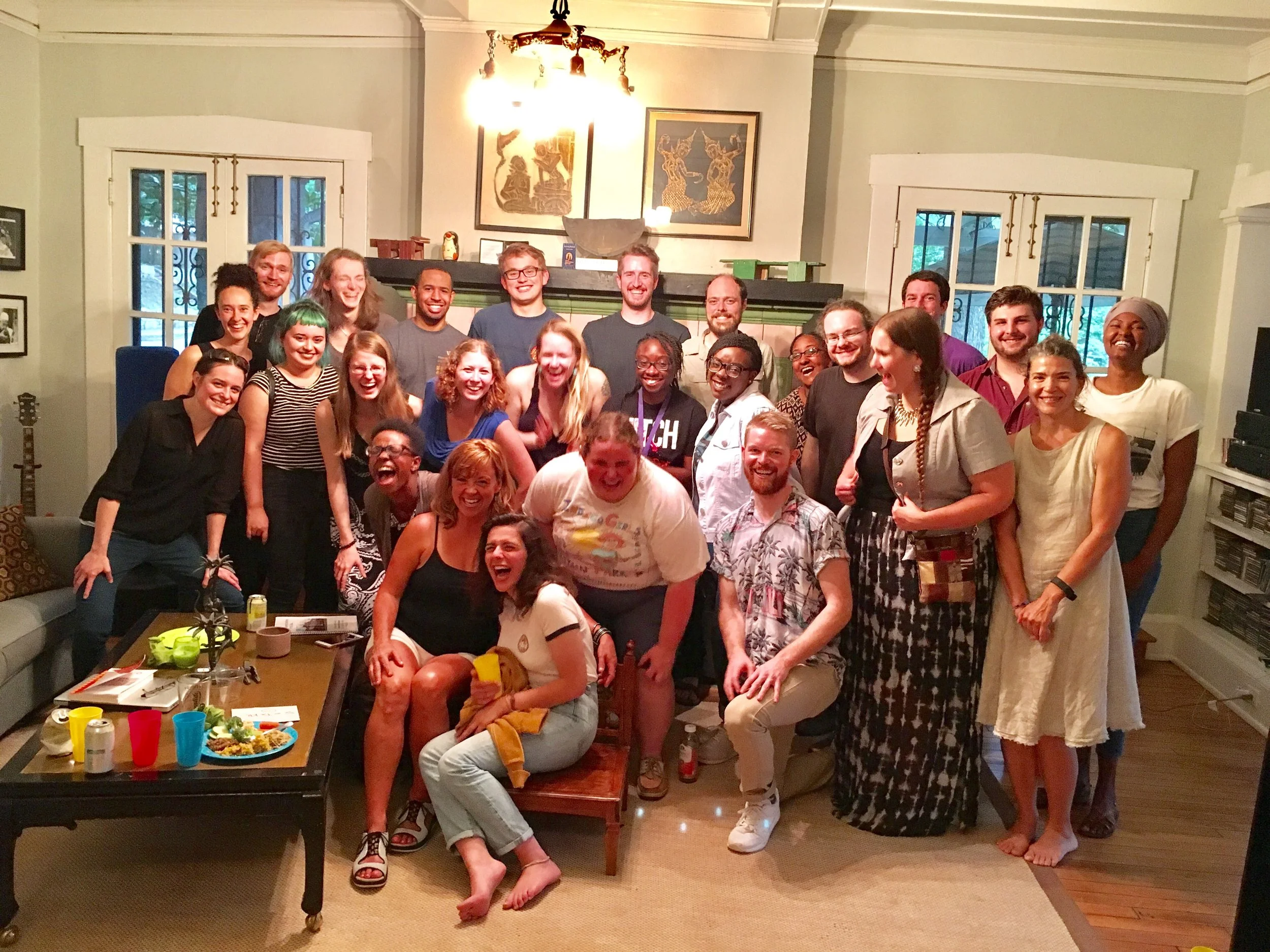Abundance.
Thanks for indulging me for a selfie, friends!
"Claire, how many styles of writing are there?" A question from my friend after writing group the other night.
My friend may have been looking for a more specific answer, but the following words immediately popped out of my mouth: "Well, I think there's probably as many styles of writing as there are people in the world."
We had just come from an hour and a half of sharing our words--starting with a writing prompt about a fall memory, followed by four pieces that individuals had written outside of our gathering. I marveled, as always, at the wonderful variety--in subject matter, voice, length, point or lesson shared. Perhaps especially in our pieces about fall--everyone putting pen to paper or fingers to keys for the same ten minutes, given the same subject--I smiled at our diversity of reflections. People often feel led to preface their piece by saying, sometimes apologetically, "Well, I took the prompt a little differently..." But that's the last thing they need to be apologetic about.
Over Labor Day weekend, I attended a panel at the Decatur Book Festival called "The Life of Writing and the Writing of Life." My first response was that it was too short--only 45 minutes--to cover the many topics that fall under the umbrella of that subject. But a big chunk of the conversation between Richard Nash and Yale professor Amy Hungerford was that of abundance and scarcity in terms of writing, especially in terms of being published. We produce far more books than society could ever deal with, they said. And, of course, for all the books that are produced, how many thousands upon thousands never do?
In that panel, they also talked about how someone's piece can be stumbled upon, discovered almost by accident, that accidents are part of the way that culture--what books happen to be published and assigned in high school and therefore ingrained in our collective psyche--comes to be formed. They asked: What kinds of cultural conditions allow writing to happen, and what conditions thwart writing?
This was a fascinating conversation that I wish could have gone on and on. But it also led back to a conversation I had with another friend and client recently, an older friend who has recently made the brave and wonderful decision to record life on the page. "How do you become a writer?"
"Pretty simple," I said. "You write."
"So I write a lot of letters, and I'm a writer?"
"Well, in a sense, I'd say yes. I guess I should amend my original response to say, if you are engaging with whatever you are writing--if you are making an effort, if you get into the process, discovering new things about yourself or others...You're a writer."
Yes, I continued, there is the distinction between writers and published writers, and those two journeys--although even that can become blurred these days with the rise of self-publishing. But in the moment, in the process of writing, we can't think about that. We shouldn't. We should write for writing's sake, for the uncovering of what came before, or what is happening now.
"Abundance breaks more things than scarcity." During the DBF panel, Nash quoted this from Craig Sherky. That means, Nash went on, when we have an abundance of words, of writers, more get left behind in terms of recognition or readership. Fewer people's words are lifted up into our general consciousness.
But I have to stand up at my minuscule microphone, in the midst of billions on the Internet, for just a moment, and say: That isn't the point. I rejoice in the abundance of words, because they are all unique to the human beings writing them. I rejoice in the abundance of human beings who feel like they have a story to tell, because they do, and someone will benefit from it, even if it is only the writer her/himself. That's one of the many reasons I love leading writing groups and working with people who have made the choice to hash out life on the page. Every human's story, their many stories, are fascinating, personal and yet at the same time, universal.
The styles of writing are limitless. So are the people they belong to. We won't encounter all of them in our lifetime, but for the ones we do, let's pay attention. Let's listen, and read, and try to understand along with them. And let's be inspired by those who are telling their stories, so that we might find the courage to tell our own.
An abundance of stories--I can't see a single thing wrong in that.




